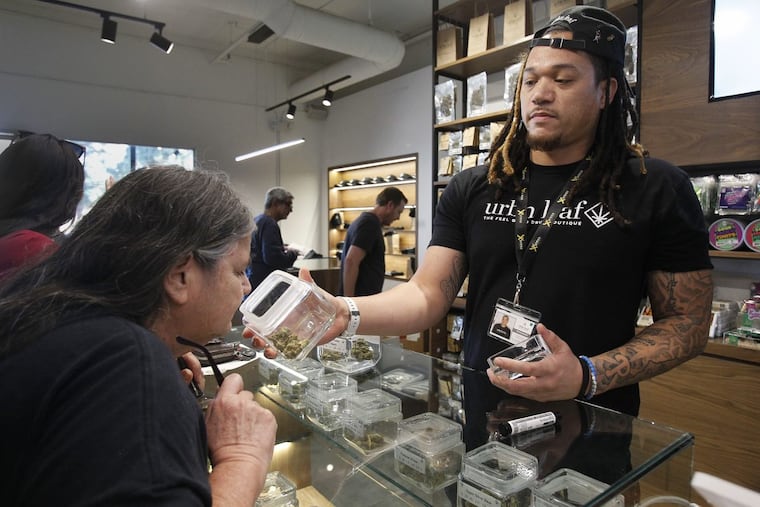Pa. marijuana board OKs sale of cannabis leaf and flower
The board also recommended expanding the number of serious medical conditions that would qualify patients to participate in the program.

The state's medical marijuana advisory board voted Monday morning to allow the sale of whole-plant cannabis — dry leaf and flower — and recommended expanding the number of serious health conditions that would qualify patients to participate in the program.
Currently, Pennsylvania allows only for the sale of marijuana oils, extracts, pills, and tinctures.
Pennsylvania Secretary of Health Rachel Levine will weigh the board's recommendations. She could take up to a year to decide whether to make the changes to the medical marijuana program's regulations.
Allowing the sale of leaf and flower could reduce the cost of the medicine for patients, many of whom have recoiled at the steep prices and limited selection of processed marijuana products for sale at dispensaries. Patients in California and Colorado buy more flower than oils, extracts, or premade edibles.
State law prohibits the sale of "smokable" marijuana. If Levine accepts the proposal, dispensaries will not sell so-called pre-rolls or joints. Patients would be told to vaporize the leaf or bud in an electronic device. However, if they choose to wrap their medicine in a cigarette paper and light it, there's little chance that authorities will come down hard on them.
"Smoking flower is the traditional cannabis therapy method that humans have used for 10,000 years," said Chris Goldstein, an advocate who writes the Philly420 column for Philly.com. "We've never had a report of state police or health officials cracking down on how patients consume their cannabis."
The state also prohibits sale of medical marijuana in an edible form. But many patients buy the oils, bake it into foods, or infuse it into such things as coconut oil, Goldstein said.
The Department of Health has granted permits to 12 marijuana growers and may issue permits to 13 more this summer. Only two growers are currently providing medicines to nine operating dispensaries. Program director John Collins told the advisory board that six growers are expected to ship medical cannabis by month's end.
If Levine approves, several new qualifying ailments may be added to the existing list of 17. The board suggested making the medicine available to patients suffering from terminal illness, neurodegenerative diseases, and spinal-cord damage. One proposal recommended broadening the definitions of chronic and intractable pain to include withdrawal symptoms from opioids.
The board also voted unanimously to allow doctors who want to write recommendations for cannabis to opt out of a public registry. Currently, the state publishes all the names of participating physicians. Some doctors have been reluctant to take part for fear that they could draw the attention of federal authorities. Though 29 states have legalized marijuana, the federal government continues to outlaw all forms of the drug.
Advocates say they think that eliminating the public registry is a bad idea. Prospective patients still report trouble finding a participating doctor who will see them, said Goldstein.
About 500 doctors — out of a total of 53,000 state-licensed physicians — have registered to write recommendations. About 28,000 Pennsylvanians have expressed interest in participating, and the state has issued cards to 11,000 patients enabling them to buy cannabis medicines.